Critical thinking skills Normal Reading Worksheets for Ages 7-8
5 filtered results
-
From - To
Enhance your child's critical thinking skills with our expertly designed reading worksheets for ages 7-8. At Kids Academy, we provide engaging and challenging exercises that stimulate young minds and promote deeper understanding. Our resources focus on nurturing problem-solving abilities, comprehension, and inferential thinking through a variety of reading passages and interactive tasks. Each worksheet incorporates age-appropriate content to foster analytical skills and encourage thoughtful responses. Perfect for classroom and home use, our critical thinking worksheets aim to sharpen intellectual development, ensuring students become confident and proficient readers. Help your child excel with Kids Academy’s premium worksheets today!
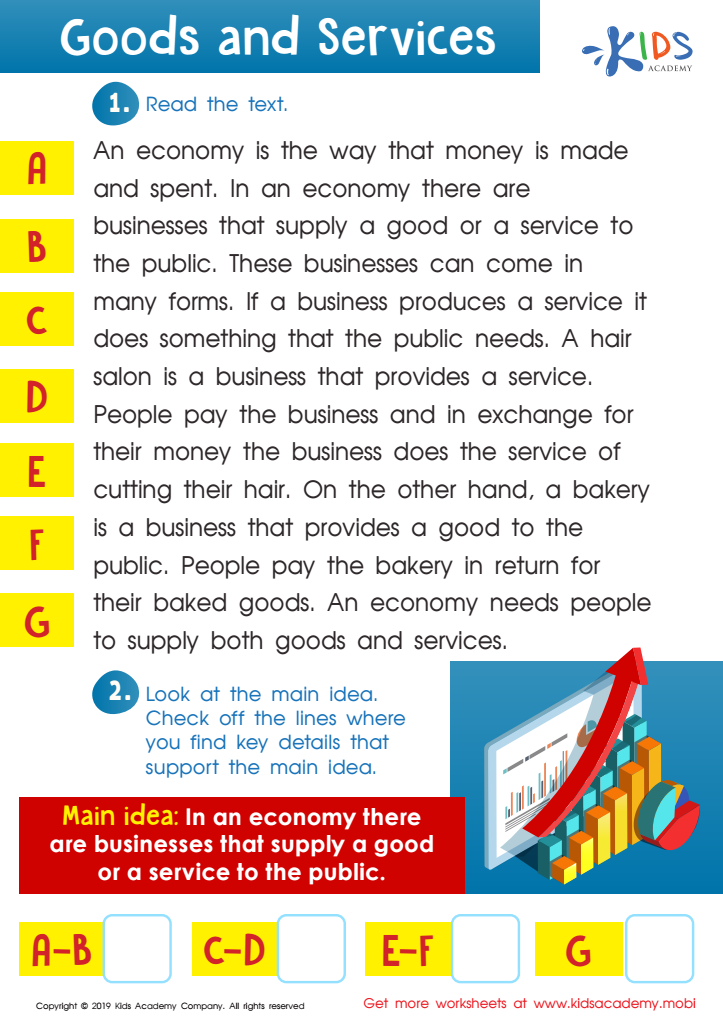

Goods and Services Worksheet
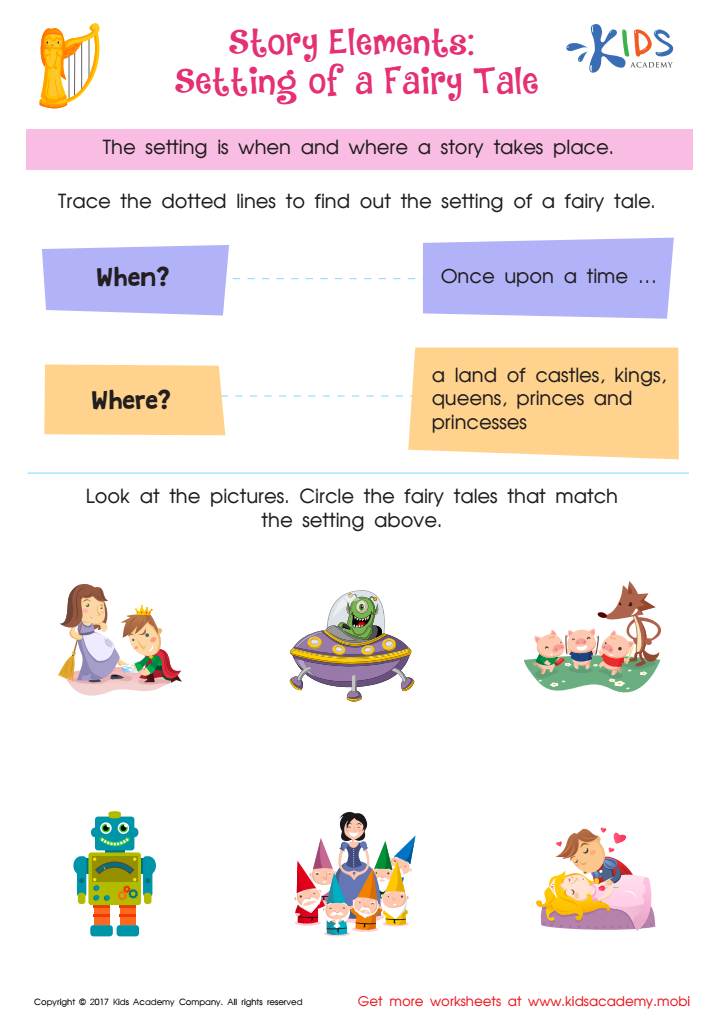

Story Elements: Setting of a Fairy Tale Printable
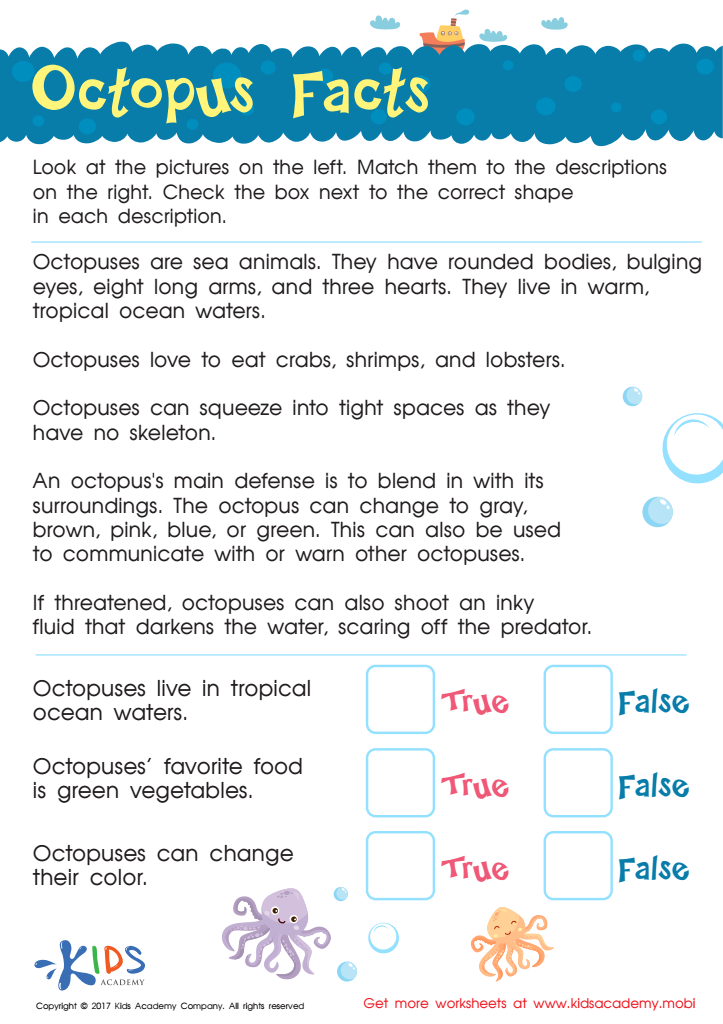

Octopus Facts Worksheet For Kids
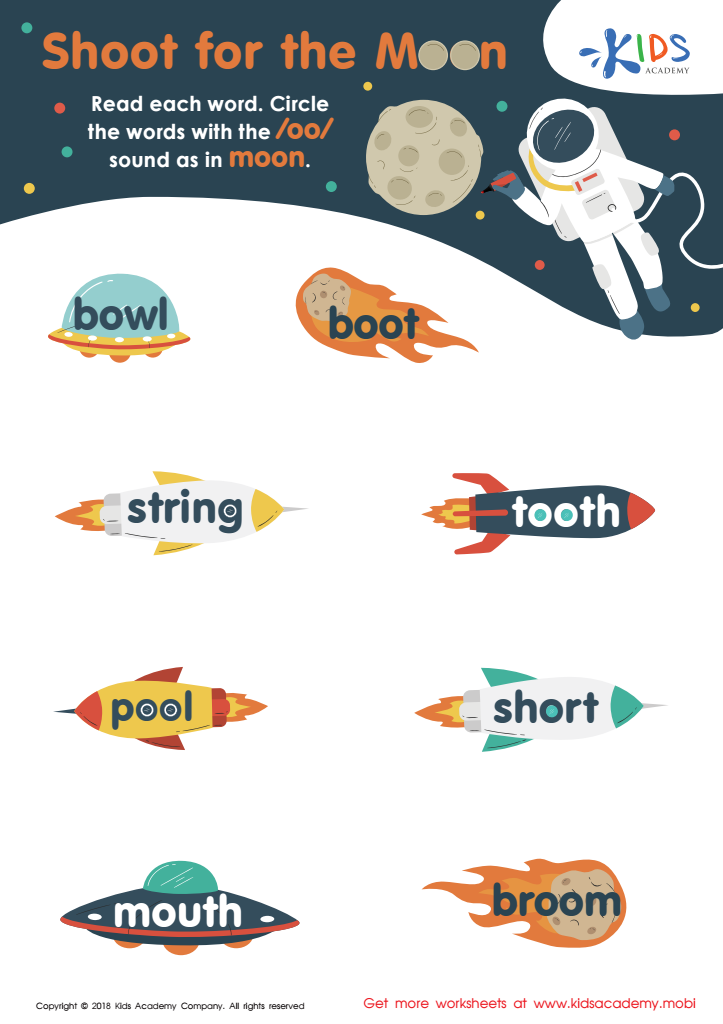

Reading: Shoot for the Moon Worksheet
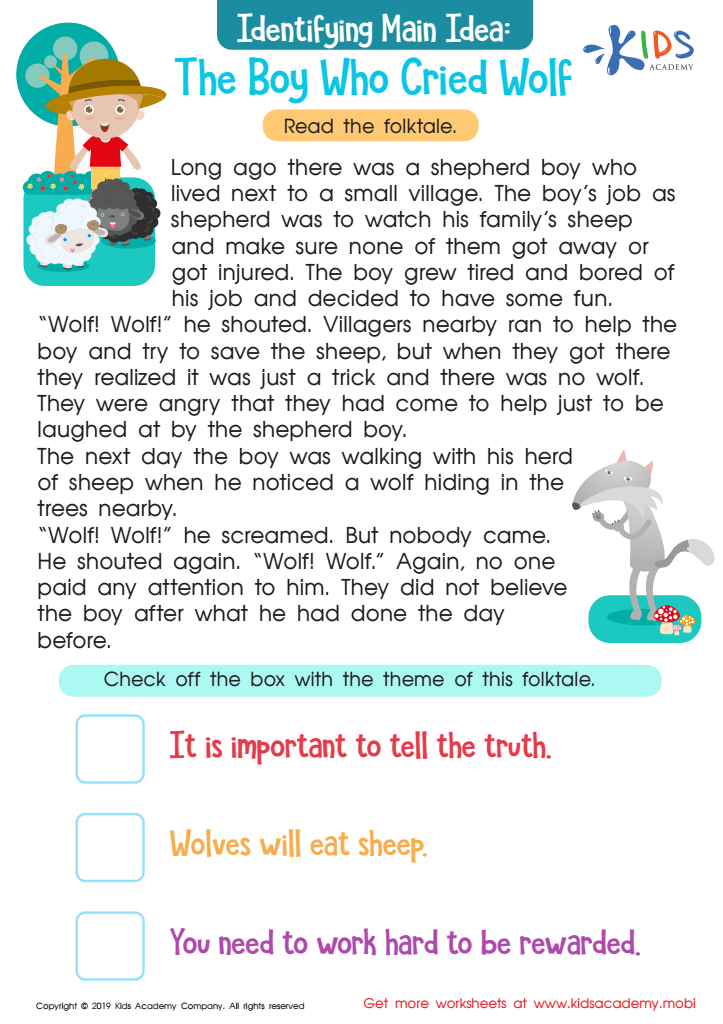

The Boy Who Cried Wolf Part 2 Worksheet
Parents and teachers should deeply care about fostering critical thinking skills and normal reading abilities in children aged 7-8 because these foundational skills significantly impact their overall academic and personal development. At this crucial developmental stage, children's brains are incredibly receptive to learning and establishing cognitive habits that will serve them throughout their lives.
Developing critical thinking skills enables children to make sense of the world in a structured and thoughtful manner. It cultivates the ability to analyze information, ask probing questions, solve problems creatively, and make reasoned decisions. These are essential skills that underpin successful learning in all subjects, from math and science to literature and social studies. Critical thinking equips children to tackle complex challenges, both in school and in life, fostering greater independence and resilience.
Similarly, normal reading skills are fundamental to learning. At ages 7-8, children transition from learning to read to reading to learn. Proficient reading skills enable them to access a wider range of knowledge, follow instructions, and engage in more extensive and complex material. Reading also enhances vocabulary, comprehension, and communication skills, which are crucial for academic success and effective interaction.
By prioritizing critical thinking and reading skills, parents and teachers set children on a path of continuous intellectual growth and lifelong learning, preparing them to thrive in an increasingly complex and information-rich world.

 Assign to My Students
Assign to My Students







.jpg)













